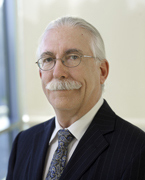
Dr. Kenneth Perrine, a neuropsychologist at the Weill Cornell Brain and Spine Center and an expert in concussion, addressed the annual Jockeys' Guild Assembly on January 28 in Hollywood, Florida, about the importance of medical evaluation of head injuries in the horse-racing profession.
The pervasive danger of head injuries was made clear when Dr. Perrine asked the 150 riders in attendance how many of them had nevertaken a fall off their horse. Not a single rider responded.
With riders being routinely injured, it might be expected that the industry would have safeguards in place to protect them, but this is not the case. Dr. Perrine talked about the lack of regulation or guidelines regarding the management of head injuries in the racing profession. “Junior high school girls playing soccer have more standards in place for looking at, managing, and treating concussions," he said.
One of the issues, said Dr. Perrine, was that jockeys don’t have contracts that protect their salaries when they are injured, which encourages them to return to riding too soon after a concussion or other injury. "You ride, you get paid; you don't ride, you don't get paid,” he said. “That is different than any other sport."
That’s a good reason to make medical care available on the track, so that jockeys can be evaluated at the time of injury and receive any needed medical care in a timely way. A recent rule change requires paramedics rather than EMTs to be present at races, to improve the level of care available during events.
Even more important, said Dr. Perrine, are professional return-to-riding recommendations to help jockeys make better decisions about when it’s safe to work again.
“Because of the pressures to return to racing, it is especially important for riders to receive medical advice as to when that is safe,” he said. “Returning too soon can risk their long-term health. I urge jockeys to think about their long-term health, and the well-being of their families, rather than making a decision based on a current paycheck.”